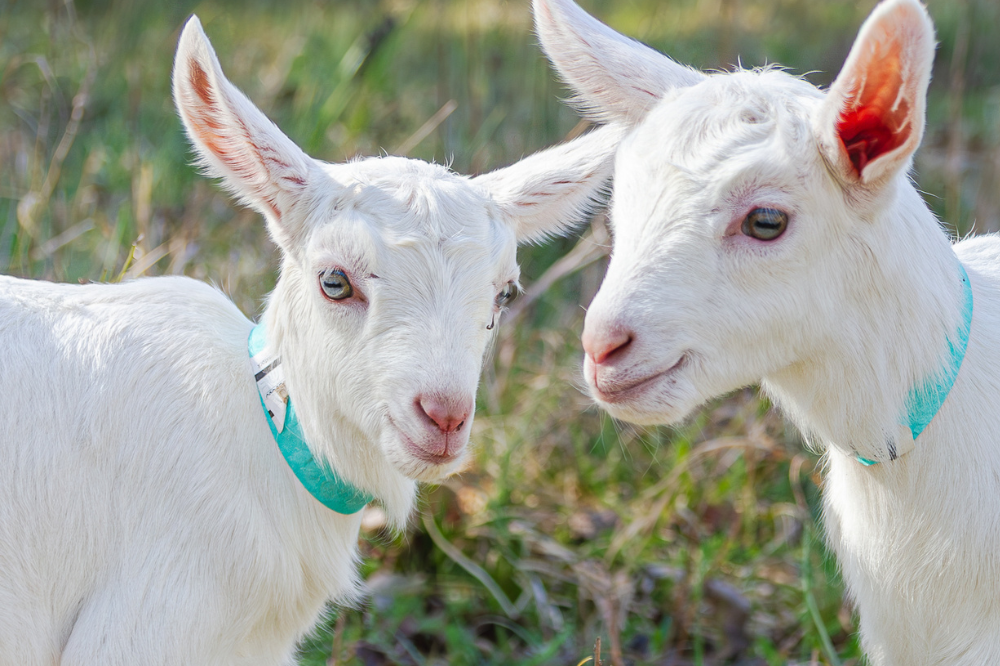

When we set down roots in Tennessee, we dreamed of building a life that was not only fulfilling but also in harmony with the land. Nestled near the breathtaking Cedars of Lebanon State Park, our farm became a place where we felt a deep responsibility to preserve the beauty around us and nurture the local ecosystem.
One of the biggest ways we do that? Rotational grazing.
It might sound technical, but stick with us. This regenerative practice doesn’t just help our goats thrive - it helps the planet, and it plays a quiet (but powerful) role in the skincare products you use every day.
What Is Rotational Grazing?
At its core, rotational grazing means moving our goat herd between different sections of pasture, called paddocks, on a regular basis. Instead of letting them graze the same spot until it’s bare, we give each area time to rest and regrow. It’s kind of like crop rotation, but for grazing animals.
Our farm spans 84 acres, and we move the goats once or twice a week, depending on the season. That rotation keeps our pastures lush, our soil healthy, and our goats happy with fresh, nutrient-rich forage. But the ripple effects go far beyond that.
Why It Matters: The Benefits of Rotational Grazing
1) Healthier Soil
When land is grazed continuously, it gets compacted, eroded, and depleted. Rotational grazing gives it time to recover, rebuild nutrients, and support a thriving ecosystem. This leads to improved soil structure, water retention, and even carbon capture.
2) Healthier Animals
Goats on fresh pasture have access to a more diverse and nutritious diet. They’re also exposed to fewer parasites and pathogens, leading to lower stress and fewer health issues overall. Another bonus is that because the goats are handled more frequently, they become more bonded and comfortable with us, making herding and milking enjoyable for them rather than stressful. And who doesn’t love to snuggle up on some goats?
3) More Biodiversity
Rotating pastures helps different grasses, herbs, and plants flourish. That’s good news not just for the soil, but also for pollinators and wildlife who depend on a healthy, diverse landscape.
4) Natural Fertilizer
When goats graze and move on, they leave behind a natural distribution of urine and manure that fertilizes the land. Over time, the quality of the soil improves in a virtuous cycle, and we have never needed to fertilize our soils. In addition, we manage the goats’ stocking density to keep invasive plants to a minimum while also ensuring a healthy array of grasses, sedges, brush, and saplings for the goats to browse.
5) Better For the Planet
Rotational grazing is a form of regenerative agriculture, which improves the land over time. It helps reduce greenhouse gas emissions by improving forage quality, eliminating the need for manure storage facilities, and increasing the soil’s ability to capture carbon, making it a powerful tool for climate resilience.
At its core, rotational grazing is a practical, sustainable way to farm. It helps us care for the land, raise healthier animals, and create a more resilient future, all while making our day-to-day operations more efficient.
Wait... What’s the Alternative?
The opposite of rotational grazing is continuous grazing - keeping animals in the same pasture all the time. Over time, this leads to overgrazing, soil compaction, loss of plant species, and environmental degradation. It’s also harder on the animals, since the forage quality drops and parasites build up.
We’ve seen firsthand how destructive that can be. It’s one of the reasons we built our farm the way we did: to break that cycle and care for the land in a way that restores rather than extracts.
How This Connects to Skincare
You might be wondering what goats and soil have to do with your soaps and moisturizers. The truth is: everything.
Little Seed Farm is one of the country’s only 100% grass-fed commercial goat herds. That means the milk in your bar soap and facial moisturizer isn’t just nourishing - it’s ethically sourced from happy, healthy animals who are part of a bigger regenerative system.
And because rotational grazing improves the health of the land, the plants, and the animals, it also improves the quality of the ingredients those animals produce.
You can feel good knowing that every bar of soap and jar of moisturizer is tied to a method of farming that cares for the planet.
From Rotated Fields to Our Products: It’s All Connected
Sustainability isn’t a buzzword here. It’s something we live by every day on the farm. From how we care for our animals to how we make our products; it all starts with our soil. Healthy soil leads to healthy forage, healthy goats, and nourishing products that support your skin - and your values.
So, the next time you reach for your Little Seed Farm soap or skincare, know that it comes from a place rooted in care, regeneration, and respect for the land. It might just be one small step in your day, but it’s part of a much bigger cycle of healing.
Curious to learn more? Just reach out and ask us! Or check out our full line of Goat’s Milk Soaps and natural skincare to see the difference for yourself.

